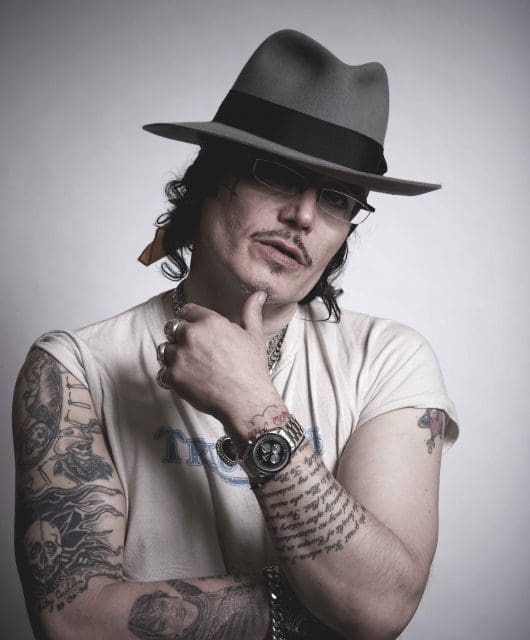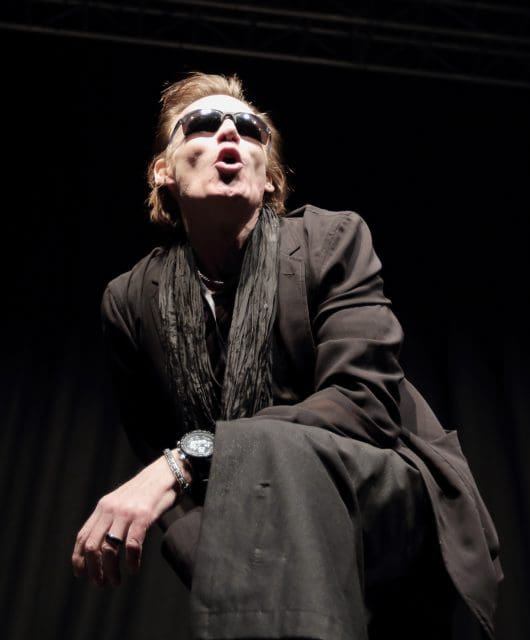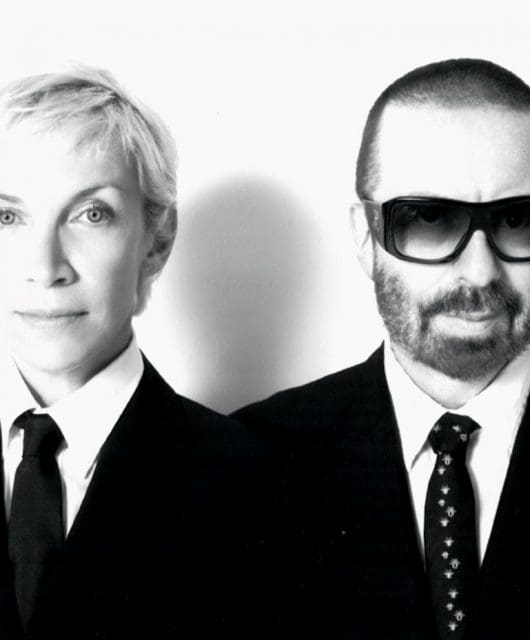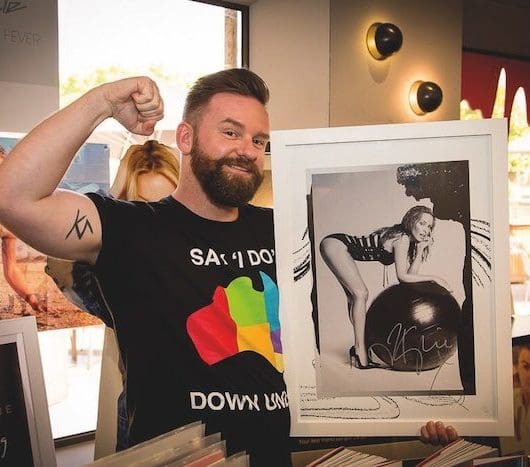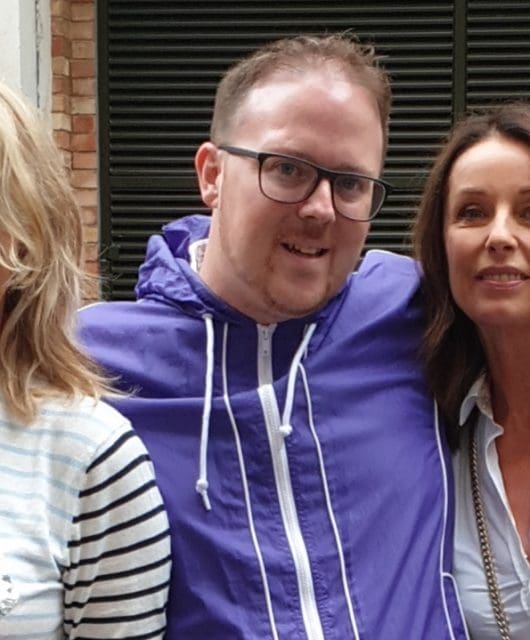Kid Creole Interview: ‘I travel around, because it’s hard to catch a moving target’
By John Earls | January 27, 2020
The tropical gangster Kid Creole? Travelling showman August Darnell? Native New Yorker and former english teacher Tom Browder? The leader of Kid Creole and the Coconuts has more identities than David Bowie and is just as suave. After going through every record company in town, the Kid explains why he’s learning from his mistakes to launch his own label…
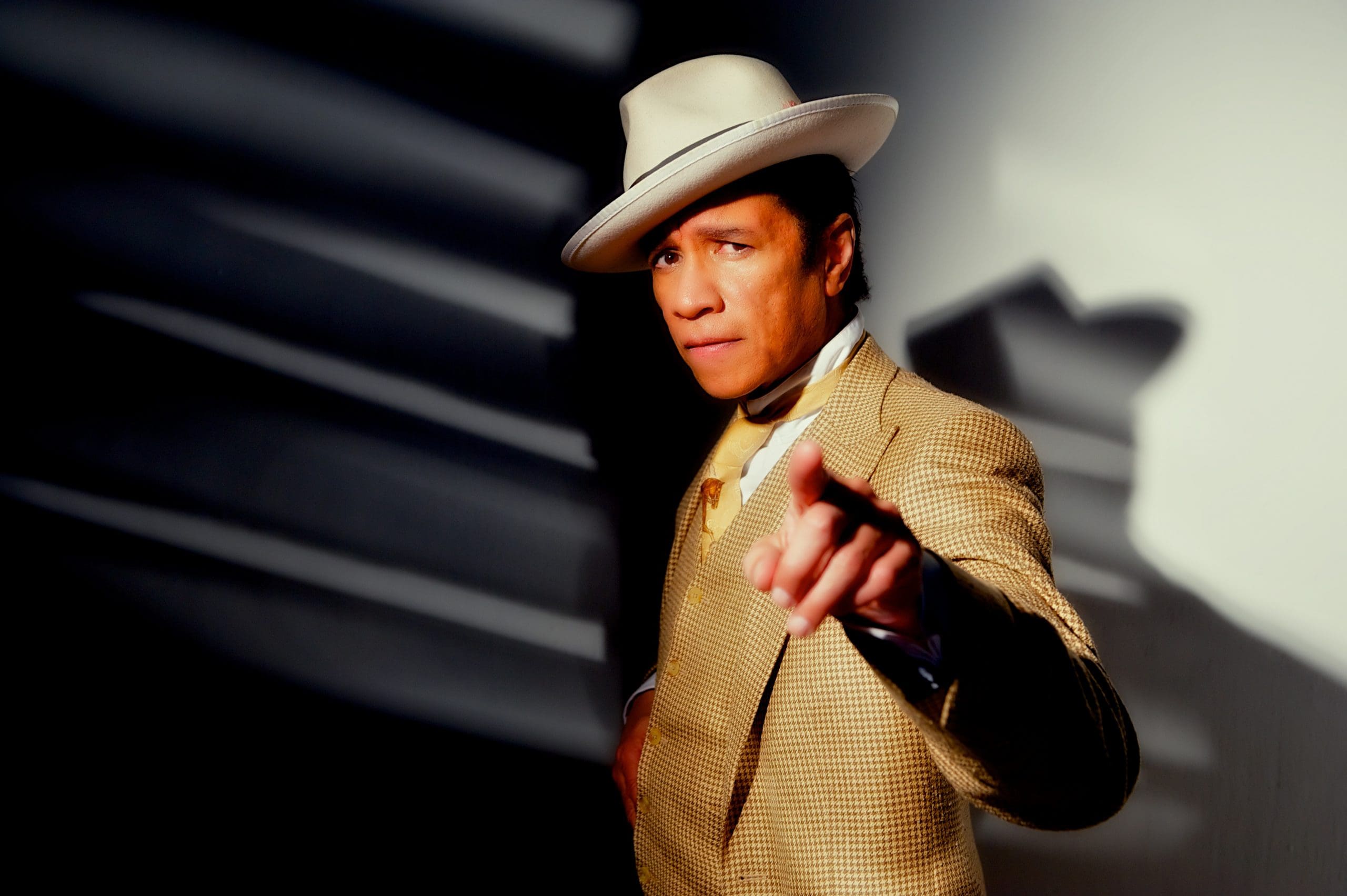
Keeping up with Kid Creole is a hard task. Classic Pop eventually tracks him down to his London bolthole via Skype, where the Kid is relaxed in a Hawaiian shirt open to the navel. He also has homes in Sweden, Maui and his native New York, explaining: “I travel around, because it’s hard to catch a moving target.” In our first email conversation via his publicist to arrange an interview time, the Kid announces: “Gentle spirits – both of those potential dates are groovilicious.” Kid Creole is every bit as Kid Creole as you could possibly want him to be.
He’s deliciously in character partly because there are many different sides to Kid Creole. It’s generally remembered from The Coconuts’ Stool Pigeon heyday that his real name is August Darnell. Wrong: he was born in New York in 1950 as Thomas Browder. It’s significant Tom started out wanting to be an actor, drifting into becoming an English teacher. “Once every 10 years, I’ll hear a shout of ‘Hey, Mr Browder!’,” laughs the former teacher at Alverta B Gray Schultz Middle School. “No-one else calls me that name. When they tell me I taught them when they were 12, I think ‘Wow, are you serious?’ because they look so old now.”
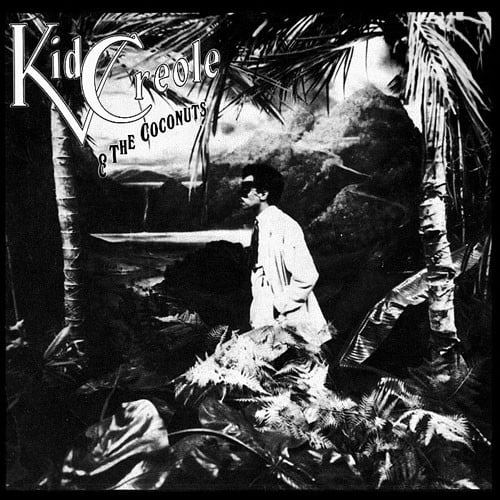 On the side, Tom played bass in his older brother Stony Browder’s outfit, Dr Buzzard’s Original Savannah Band. Tom also wrote their lyrics – 1976 US hit Cherchez La Femme was a prototype for Kid Creole’s lothario attitude – but at the time, Tom Browder found it easier to be the ladies’ man writing for his more charismatic big brother. “Even my parents thought Stony was the king of Manhattan,” the Kid says now. “He was the shining star who was going to be President one day. Stony was such a powerful character, I had to drop ‘Browder’ from my name to be my own guy. Darnell was my middle name, and ‘August’ sounds regal. I became August Darnell to create my own legacy.”
On the side, Tom played bass in his older brother Stony Browder’s outfit, Dr Buzzard’s Original Savannah Band. Tom also wrote their lyrics – 1976 US hit Cherchez La Femme was a prototype for Kid Creole’s lothario attitude – but at the time, Tom Browder found it easier to be the ladies’ man writing for his more charismatic big brother. “Even my parents thought Stony was the king of Manhattan,” the Kid says now. “He was the shining star who was going to be President one day. Stony was such a powerful character, I had to drop ‘Browder’ from my name to be my own guy. Darnell was my middle name, and ‘August’ sounds regal. I became August Darnell to create my own legacy.”
Dr Buzzard were regulars at Studio 54, a lifestyle which soon seduced Stony, who sadly died in 2001. “If Stony hadn’t encouraged me to become the bassist and songwriter in his band, I may have been a schoolteacher the rest of my life,” says ‘August’. “There are elements in your life which determine your fate, but which you have no control over.”
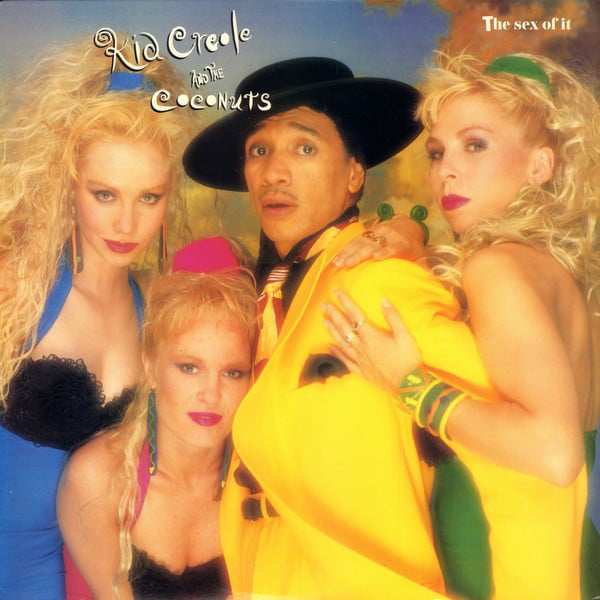 While he may be the smoothest cat in New York, Kid Creole has remained drug-free and teetotal his whole life. “I saw drugs destroy my brother,” he sighs. “I’ve watched that life from the outside. From that, I know I don’t have to be on the inside.”
While he may be the smoothest cat in New York, Kid Creole has remained drug-free and teetotal his whole life. “I saw drugs destroy my brother,” he sighs. “I’ve watched that life from the outside. From that, I know I don’t have to be on the inside.”
A recent Kid Creole And The Coconuts single was called You Don’t Know Me. Given his various personas, who does know the real Kid Creole? He laughs delightedly for a while, before responding: “I have so many different faces! The only people who really get close and understand which face is real and which is the mask are my children and my beloved wife Eva. Anyone else? I’m an actor at heart. I took my love of theatre into Kid Creole And The Coconuts, and that’s why we’re such a theatrical enterprise.”
It’s perhaps no surprise that, having strutted across the Top 10 with Annie, I’m Not Your Daddy, Dear Addy and I’m A Wonderful Thing, Baby, the man himself forgot to take the mask off and be real. “I was going out there just to make money,” he admits. “It lasted a short time, as I was disgusted with my choices. If I was going to continue, it had to be real and it became real by getting guys who believe in what they’re doing. A bandleader is only ever as good as their band.”
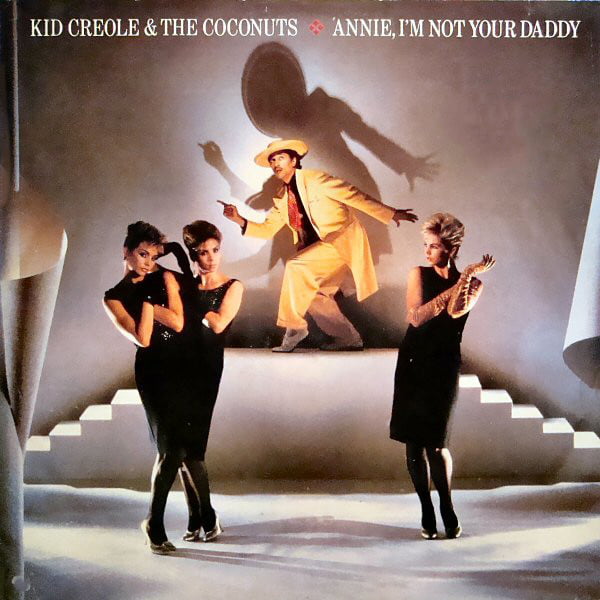 He recruited percussionist Coati Mundi, drummer Mickey Sevilla and backing singer Cory Daye from Dr Buzzard for The Coconuts. Just as they were getting tight on the New York club scene, a Brit stepped in when Michael Zilkha, the heir to the Mothercare fortune, used his wealth to set up record company, Ze. The Kid recalls: “Because all wealthy people know each other, Michael knew Chris Blackwell, who founded Island Records. The rest is history.”
He recruited percussionist Coati Mundi, drummer Mickey Sevilla and backing singer Cory Daye from Dr Buzzard for The Coconuts. Just as they were getting tight on the New York club scene, a Brit stepped in when Michael Zilkha, the heir to the Mothercare fortune, used his wealth to set up record company, Ze. The Kid recalls: “Because all wealthy people know each other, Michael knew Chris Blackwell, who founded Island Records. The rest is history.”
Huge in Britain and France on Island, the band stalled back home, despite appearing in Jeff Bridges’ Oscar-nominated thriller Against All Odds. “The American radio system was messed up,” he frowns. “Defying categorisation was our blessing and our curse. They didn’t know how to market us back home, but being eclectic worked for us in Europe. It’s good that a mishmash of music is much more common nowadays.”

Signing For Mr Big
Kid Creole admits his biggest mistake was signing to Sony for 1990’s album Private Waters In The Great Divide, when Chris Blackwell had wanted to re-sign The Coconuts to Island. Sony may have offered five times more money but Kid Creole’s respect for Blackwell is strong. He recalls how Blackwell made him change the title and sleeve of their 1982 US album Wise Guy, which became their European breakthrough LP, Tropical Gangsters. “Blackwell told me ‘The UK sees Kid Creole as a charming bon viveur in a zoot suit,’” says the Kid. “Blackwell said: ‘That Wise Guy sleeve of you holding a naked woman on the beach is not the image.’ Blackwell was a believer, the guy in charge willing to be in the trenches on small details.”
Legendary mogul Tommy Mottola had signed Kid Creole And The Coconuts to Sony but things quickly went sour. “Tommy got too big for his britches when he married Mariah Carey,” he insists. “He started thinking he was bigger than his artists. He even got into an argument with Michael Jackson, for Christ’s sake! Tommy stopped taking my phone calls and I had to rely on a pitiful A&R guy who didn’t believe in us and didn’t get our eclectic blend. Our calling card was the marriage of calypso, soca, jazz, R&B, funk, soul, pop and country & western. This guy wanted to streamline us into one thing only – dance music.” Private Waters In The Great Divide didn’t make the Top 100.
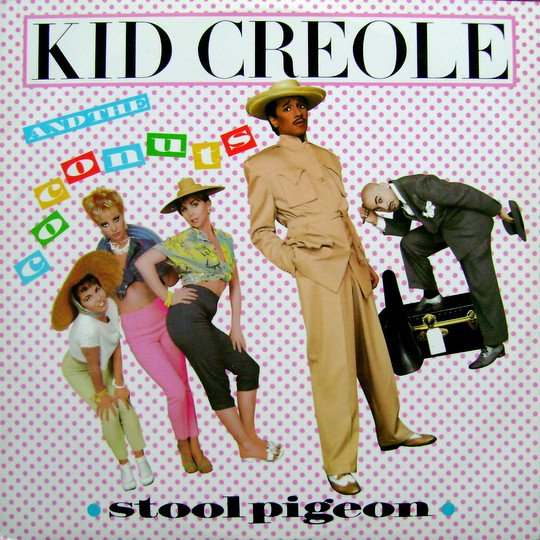 Kid Creole And The Coconuts have also released records on EMI, Sire, RCA, Warner and Universal – “I’ve been through every record company in existence,” as their leader ruefully admits. Most recently, he’s just started his own record company 2C2C – 2 Cool 2 Conga. “2C2C is a blessing because I no longer have to deal with A&R people,” he smiles. “The problem is distribution – how do you reach the masses in this age of a music business which has imploded in on itself and is a ridiculous business anyway? But we still love it!”
Kid Creole And The Coconuts have also released records on EMI, Sire, RCA, Warner and Universal – “I’ve been through every record company in existence,” as their leader ruefully admits. Most recently, he’s just started his own record company 2C2C – 2 Cool 2 Conga. “2C2C is a blessing because I no longer have to deal with A&R people,” he smiles. “The problem is distribution – how do you reach the masses in this age of a music business which has imploded in on itself and is a ridiculous business anyway? But we still love it!”
The Kid’s 2C2C business partner is Peter Schott, The Coconuts’ long-standing keyboardist who co-wrote I’m A Wonderful Thing, Baby. “Peter has been my guy from day one,” he enthuses. “I remember him giving me this piece of music, saying ‘What do you think?’ This was during my egotistical period, so my first lyric was ‘I’m a wonderful thing, baby’ and that worked.”
A Family Affair
2C2C releases music by Schott’s project Schott Treatment and singer-songwriter Tchengiz – as well as Kid Creole And The Coconuts themselves. His daughter Savanna sang on recent anti-gun crime anthem Do Yourself A Favour, while new Coconuts single Checkin’ My Colonies is produced by his son Darrio, previously signed to Island under his producer alias Youngr.
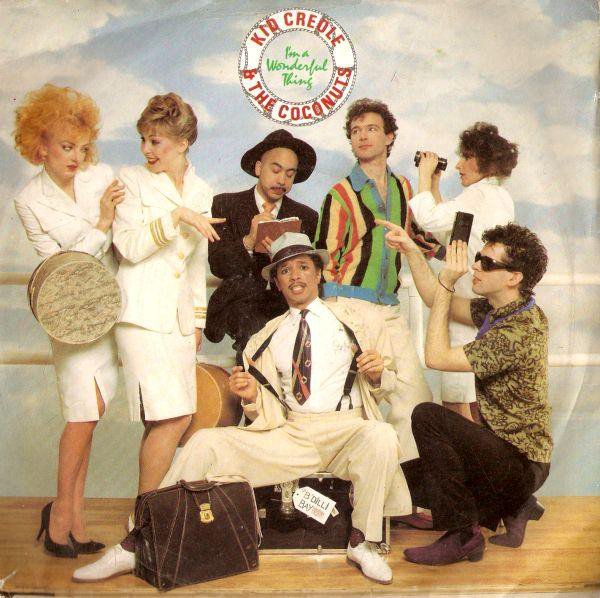 Kid Creole’s key piece of advice for his 2C2C signings is to always keep control of their copyright, since it might pay off years later. As proof of this, There But For The Grace Of God Go I, a long-forgotten Coconuts single from 1980, was revived when it appeared on Baz Luhrman’s Netflix drama The Get Down. Spike Lee has since used it in his TV spin-off of She’s Gotta Have It. Says The Kid: “All we need to make 2C2C a label to be remembered is one great song. I don’t want to jinx it but I think Checkin’ My Colonies could be that song. Whatever song makes us, we’re amassing a great catalogue ready to be discovered.”
Kid Creole’s key piece of advice for his 2C2C signings is to always keep control of their copyright, since it might pay off years later. As proof of this, There But For The Grace Of God Go I, a long-forgotten Coconuts single from 1980, was revived when it appeared on Baz Luhrman’s Netflix drama The Get Down. Spike Lee has since used it in his TV spin-off of She’s Gotta Have It. Says The Kid: “All we need to make 2C2C a label to be remembered is one great song. I don’t want to jinx it but I think Checkin’ My Colonies could be that song. Whatever song makes us, we’re amassing a great catalogue ready to be discovered.”
Although he loves staying on the move, Kid Creole refuses to return to the US “until Trump is dethroned”. Despite his sobriety, he misses Ambrosia, the Maui beach bar his wife Eva used to run and in which he was the resident DJ. He cackles: “It made me laugh when people told me ‘You’ve got a lot of nerve to play Frank Sinatra in a bar straight after Drake.’” But that’s Kid Creole – equal parts Sinatra and Drake. Quite which musical icons best represent August Darnell/Tom Browder, most of us will probably never find out.
Click here to read more Classic Pop interviews


